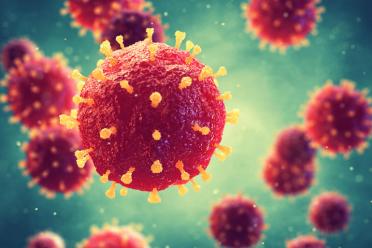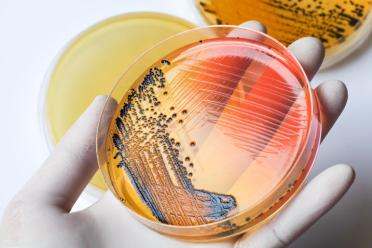Spotlight on: Neil Hall Group - targeting pathogens
Group Leader Neil Hall explains about the work of the Hall Group, which is focussed on researching genomes of microbes and microbial communities.
Group Leader Neil Hall explains about the work of the Hall Group, from pathogen population genetics and Salmonella genomics to eukaryotic biodiversity for the Earth Biogenome Project.
We work on pathogen population genetics and comparative genomics. We want to understand why some pathogens are virulent and others are not and what determines host selection. We work on a wide range of microbes from the bacterial pathogen Salmonella, plant fungal pathogens as well as protist pathogens.
Pathogen genomes are particularly interesting as they evolve to respond to the host immune system which in turn is rapidly evolving to evade the pathogen. This makes the analysis of pathogen genomes both interesting and difficult as the genes that you are interested in tend to be unique to each species (and hence difficult to identify).
Understanding population genetic of pathogens is very important as it helps us to predict outbreaks and also the spread and emergence of important traits such as drug resistance and virulence.

Mark McMullan and Michelle Grey are working on sugar beet and wheat pathogens and are trying to understand how crop pathogens populations interact and recombine with pathogen populations in wild species.
Matt Bawn is working on Salmonella to understand how it’s transmitted in the food chain but has recently started a project to understand how the bacteria acquire antibiotic resistance by growing cultures in the presence of low concentrations of antibiotics and studying how the genome evolves.
Ross Low is also working on Salmonella genomes, in this case, he is analysing the 10,000 genomes we recently sequenced by the Genomics Pipelines Group. These samples came from all over the world and we are looking to see if outbreak strains share common genomic changes, as well as if these changes are shared in different strains with important clinical phenotypes such as drug resistance.

A major part of the Earth Biogenome Project will be to attempt to sequence the genomes of the single-celled eukaryotes (aka. Protists or protazoa). These organisms are hugely diverse and there are many biological classifications for there are no sequenced species.
These organisms are rich in novel cellular biology in terms of morphology, metabolism and molecular biology, and so there could be a lot we could learn about gene function from comparative genomic analysis. Most of these organisms can’t be cultured in the lab, so we are collaborating with Iain Macaulay’s Group and Tom Richards Group in Exeter to develop single cell genomic approaches to sample the biodiversity of protists.
If we can apply these methods at scale it would transform our understanding of eukaryotic biodiversity and we hope this could be a major contribution of EI’s to the Earth Biogenome Project.
